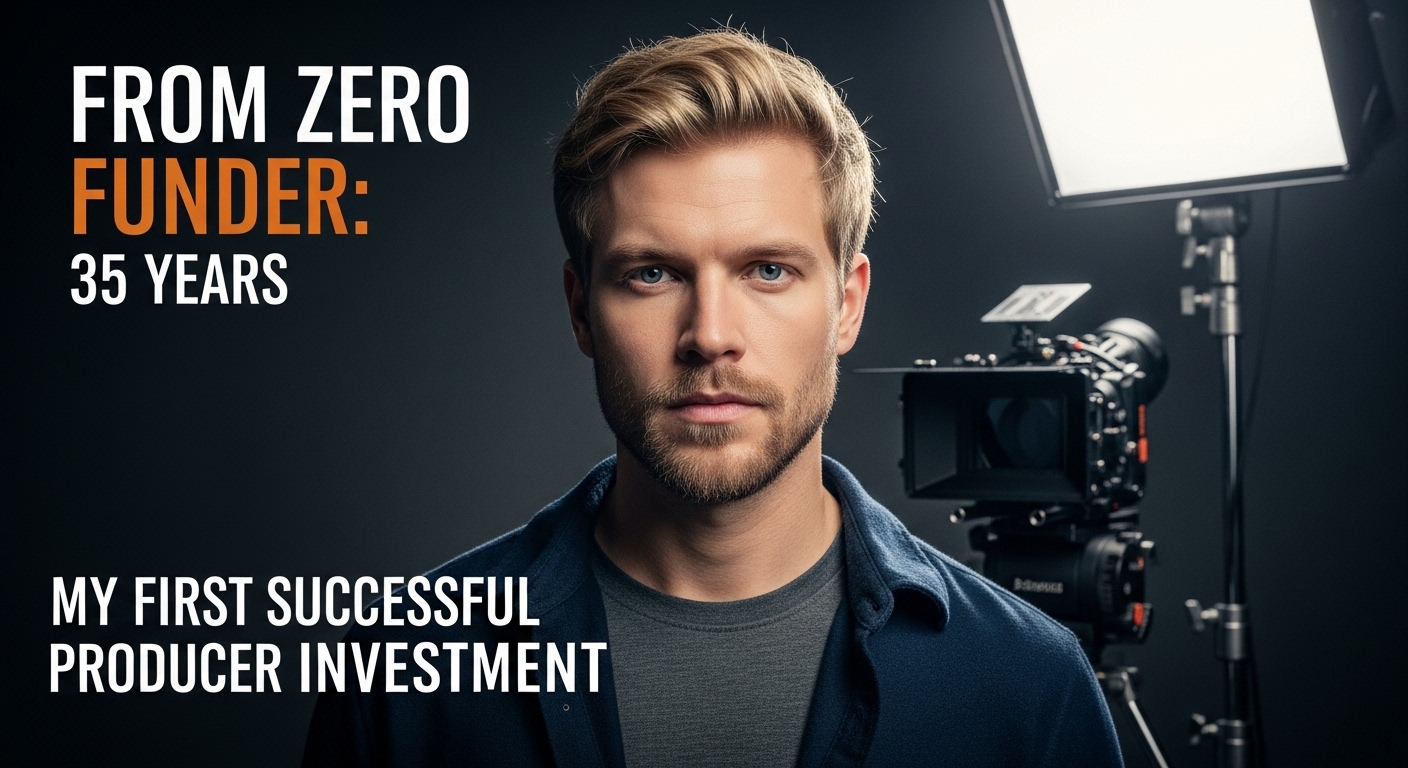🎬 1. Pre-Production is Everything
“The more time you spend in pre-production, the less time you waste on set.”
— James Cameron, Director (Titanic, Avatar)
Cameron emphasizes the value of thorough planning. From storyboards to shot lists, this phase defines the efficiency and clarity of the entire production.
🎥 2. Story Comes First
“If it’s not compelling on the page, no amount of camera movement or fancy editing is going to fix it.”
— Shane Hurlbut, ASC Cinematographer (Act of Valor, Into the Badlands)
Visuals enhance, but can’t replace, a weak narrative. Build a strong story foundation before hitting “record.”
🎤 3. Audio Quality Is Non-Negotiable
“People will forgive bad video before they forgive bad audio.”
— George Lucas, Creator of Star Wars
Invest in quality microphones and sound design. Clean, clear audio elevates your production from amateur to professional instantly.
💡 4. Lighting Sets the Tone
“Lighting is not just about visibility—it’s storytelling.”
— Roger Deakins, Oscar-Winning Cinematographer (1917, Blade Runner 2049)
Deakins reminds us that light creates mood, shapes perception, and controls emotion. Learn how to shape and control light to match your message.
🧠 5. Know Your Gear—But Don’t Obsess
“It’s not about having the best camera. It’s about using what you have to tell the best story.”
— Philip Bloom, Filmmaker and Camera Expert
Master your tools, but don’t wait on gear to start shooting. Content is king—craft comes with practice.
🖥 6. Edit with Purpose
“Every cut should serve the story. If it doesn’t, lose it.”
— Thelma Schoonmaker, Editor for Martin Scorsese
Editing isn’t just technical—it’s emotional. Trim the fat, keep the rhythm, and let the story breathe.
🔁 7. Feedback Makes You Better
“Show your work early and often. Feedback is not your enemy—it’s your fuel.”
— Casey Neistat, YouTuber and Filmmaker
Don’t wait for perfection. Publish, iterate, and evolve. Let others help sharpen your creative vision.
In the world of video production, the right advice can be a game changer. Whether you’re a budding filmmaker or an experienced video producer, guidance from those who have walked the path can illuminate your journey.
Imagine standing in a bustling studio, surrounded by lights and cameras, armed with insights that could elevate your work to new heights. What’s the best piece of advice you’ve received about video production? It’s a question that stirs curiosity and sparks inspiration.
In this article, we dive into the wisdom of industry experts who have shaped the art of storytelling through moving images. They share invaluable video production tips that go beyond mere technicalities.
From mastering the craft of narrative to embracing collaboration, these insights reveal how to breathe life into your visions. As you read on, prepare to be inspired and empowered to take your projects from concept to captivating reality. Your next great story awaits!
The Power of Storytelling.
In the world of video production, a compelling narrative is everything. It’s not just about pretty visuals or slick editing; it’s about connecting with your audience on an emotional level. A great story captivates viewers, drawing them into your world and making them care about what happens next.
Whether you’re crafting a short film, a documentary, or a commercial, the essence of storytelling remains the same: it’s about people and their journeys.
What’s the best piece of advice you’ve received about video production? Many industry veterans will tell you that a strong narrative can elevate even the simplest projects into something memorable.
But how does storytelling enhance your technical skills? When you focus on the narrative, your technical decisions become clearer. You start to understand how lighting, camera angles, and sound design serve the story.
For instance, think about how a low-angle shot can create a sense of power in a character or how soft lighting can evoke intimacy.

Each technical choice should align with the narrative you want to convey, transforming mere techniques into tools that bring your story to life. Embracing storytelling not only hones your skills but also gives your work depth and meaning.
Experts emphasize that crafting engaging stories begins with understanding your characters. Who are they? What do they want? What obstacles do they face? Start by asking these questions before you even pick up a camera.
Consider the journey of a filmmaker like Ava DuVernay, who often focuses on character-driven narratives. Her films reveal the human experience through rich storytelling, which resonates deeply with audiences.
To create engaging content, remember to keep your audience in mind. Use relatable situations and emotions that draw them in, making them feel part of the journey.
Finally, don’t forget the power of feedback in shaping your story. Share your drafts and ask for input from peers or mentors. They can offer insights that help refine your narrative arc or identify gaps in your character development.
This collaborative spirit can lead to breakthroughs that elevate your project to new heights. So as you embark on your filmmaking journey, remember: a well-told story is your greatest asset. It connects hearts and minds and transforms ordinary moments into extraordinary experiences.
Mastering the Technical Aspects.
To tell a great story, you need the right tools in your toolbox. Every filmmaker should focus on mastering key technical skills that form the backbone of video production. This includes understanding camera settings, lighting techniques, and sound design.
Each element plays a crucial role in how your story is perceived. For instance, a well-lit scene can evoke emotions, while poor sound quality can distract from even the most compelling narrative. As industry veterans often say, “The audience can forgive a bad story, but they won’t forgive bad audio.”
When it comes to equipment, the recommendations vary widely based on your budget and project needs. If you’re just starting out, consider investing in a DSLR or mirrorless camera that offers manual control over settings.
Brands like Canon and Sony are popular for their versatility and quality. For sound, a shotgun microphone can significantly enhance audio clarity, making your dialogue stand out.
Software-wise, Adobe Premiere Pro and Final Cut Pro are industry standards for editing, offering powerful features that can elevate your final product. These tools not only streamline your workflow but also allow for creative freedom in post-production.
But even with the best gear and software, filmmakers often stumble into common technical pitfalls. One frequent mistake is neglecting pre-production planning, which can lead to chaotic shoots and missed opportunities.
Experts advise creating a shot list and storyboard to keep your vision focused. Additionally, ensure you understand the basics of framing and composition; these principles are vital for visually engaging content. Remember that every frame tells a story, and a poorly composed shot can detract from your message.
Incorporating these expert insights into your filmmaking process will not only boost your confidence but also enhance the quality of your work. By mastering the technical aspects, you equip yourself to bring your creative vision to life.
Embrace the learning curve, experiment with different techniques, and don’t shy away from asking questions along the way. The journey of mastering these skills is just as rewarding as the final product you create.
Collaboration and Teamwork.
When it comes to video production, the magic often happens behind the scenes, thanks to a diverse team working in harmony. One expert once shared, “What’s the best piece of advice you’ve received about video production?
It’s to surround yourself with people who bring different perspectives.” This sentiment speaks volumes about the value of collaboration.
A team made up of individuals with varying backgrounds, skills, and experiences can spark creative strategies that elevate your project to new heights. When everyone contributes their unique strengths, the result is a richer, more dynamic narrative that resonates with audiences.
Effective communication is the backbone of successful teamwork. It’s not just about sharing ideas; it’s about actively listening and valuing each person’s input.
Experts recommend holding regular meetings to discuss progress and address concerns. These gatherings foster an environment where everyone feels comfortable sharing their thoughts.

For instance, during a documentary shoot, one filmmaker learned that by simply asking his cinematographer for their opinion on shot composition, they were able to create stunning visuals that neither had envisioned alone. This open dialogue led to an outcome far better than what either could have produced individually.
Collaboration dynamics can be complex, but they are also incredibly rewarding. Industry veterans emphasize the importance of adaptability when working with others. Conflicts may arise, but how you handle them can define the success of your project.
One director recalls a challenging experience on set where differing creative visions clashed. Instead of forcing a resolution, the team took a step back and brainstormed together, ultimately merging their ideas into a cohesive vision.
This taught them that compromise can lead to unexpected brilliance—an essential lesson for any aspiring filmmaker.
Ultimately, embracing teamwork and communication can transform your video production process. Whether you’re working with seasoned professionals or fellow students, remember that collaboration is about building each other up.
As you navigate this creative journey, keep those lines of communication open and welcome diverse viewpoints. The synergy that arises from effective collaboration not only enhances your work but also creates lasting relationships that can fuel your career for years to come.
Embracing Feedback and Critique.
Feedback can feel like a punch to the gut, especially after pouring your heart and soul into a project. Yet, constructive criticism is often the secret ingredient to growth in video production.
Industry experts emphasize that welcoming feedback opens the door to new perspectives. It’s not about tearing down your work; it’s about building it up. When you learn to see critique as a gift rather than a setback, you’ll find that your production techniques improve dramatically.
To effectively seek and handle feedback, start by asking specific questions. Instead of a vague “What do you think?” try, “How did the pacing feel in the second act?” This invites more focused responses and gives you actionable insights.
Create an environment where honest opinions are encouraged. Remember, every piece of advice you receive is a stepping stone toward refining your craft. Filmmaker Ava DuVernay once shared that she actively seeks out feedback from her collaborators, valuing their unique viewpoints as essential to her creative process.
Handling criticism gracefully is just as important as seeking it. Take a moment to absorb the feedback before reacting. Instead of defending your choices, listen closely to understand the critique.
Renowned director Martin Scorsese has spoken about how he learned to embrace feedback from his mentors and peers. He recalls moments when he felt vulnerable yet emerged stronger, using that input to enhance his storytelling skills.
Ultimately, the journey of filmmaking is one of constant evolution. By embracing feedback, you not only strengthen your current projects but also lay a solid foundation for future endeavors.
Each critique is an opportunity to elevate your work and refine your vision. So, take a deep breath, open your heart to feedback, and watch your creativity flourish.
The Importance of Persistence.
Every filmmaker faces hurdles. Whether it’s a project that falls through, budget constraints, or creative blocks, the road to success is rarely smooth. One poignant example comes from director Ava DuVernay, who faced numerous rejections before her breakthrough with “Selma.”
Her persistence paid off when she finally got the chance to tell a powerful story that resonated with audiences worldwide. DuVernay reminds us that resilience in the face of setbacks can lead to extraordinary outcomes. It’s a testament to the fact that every “no” brings you closer to that elusive “yes.”
Staying motivated during tough times can be challenging. One effective technique is to set small, achievable goals. Break your larger projects into bite-sized tasks. Celebrate each completed step, no matter how minor it may seem.
This creates a sense of accomplishment that fuels your passion and keeps the momentum going. Additionally, surrounding yourself with a supportive community can make a significant difference.

Share your struggles and successes with fellow filmmakers or mentors. Their encouragement and insights can reignite your passion for filmmaking and help you stay focused on your goals.
Another powerful strategy is to revisit the reasons why you fell in love with filmmaking in the first place. Watch films that inspired you or read stories about your favorite directors’ journeys.
This act of reflection can rekindle your enthusiasm and remind you of the impact that storytelling can have. As filmmaker Greta Gerwig said, “It’s about finding joy in the process.” Embrace the ups and downs, and remember that even the best in the industry have faced their share of challenges.
When you’re feeling overwhelmed, ask yourself: What’s the best piece of advice you’ve received about video production? Let those words guide you through tough times.
Persistence isn’t just about pushing through adversity; it’s also about maintaining your passion for the craft. Techniques like journaling your thoughts and experiences can help clarify your vision and keep your creativity flowing.
Take time to explore new genres or styles to expand your skill set. Embracing these industry secrets will not only enrich your work but also reinforce your commitment to becoming a better filmmaker.
Remember, every great story includes moments of struggle, and your journey is no different. Keep pushing forward, and let your passion shine through every frame you create.
Networking and Building Relationships.
Networking in the film industry is not just about exchanging business cards; it’s about building genuine relationships that can last a lifetime. One effective strategy is to attend industry events, workshops, and film festivals.
Here, you’ll meet like-minded individuals who share your passion for storytelling in film. Be open, approachable, and willing to share your own experiences. Remember, everyone is there for the same reason: to connect and learn.
One filmmaker shared how they met their future collaborator at a local screening. That casual conversation blossomed into a project that won awards, proving that the right connection can change everything.
Mentorship plays a crucial role in career development. Having an experienced mentor can provide you with invaluable insights and guidance as you navigate the complexities of video production.
Seek out mentors who inspire you, whether through their work or their approach to filmmaking. Reach out via social media or professional platforms like LinkedIn, and don’t be afraid to express your admiration for their work.
A simple message can open doors. Many successful filmmakers attribute their breakthroughs to the support and wisdom of mentors who believed in them when they were just starting out.
Social media is a powerful tool for networking in today’s digital age. Platforms like Instagram, Twitter, and even TikTok allow you to showcase your work while connecting with industry professionals.
Share behind-the-scenes glimpses of your projects, engage with others by commenting on their posts, and join discussions in relevant groups. Don’t hesitate to reach out directly to creators you admire—many appreciate the outreach and are willing to offer advice.
One filmmaker turned a simple Twitter thread into a fruitful collaboration with a well-known director, illustrating how online interactions can lead to exciting opportunities.
Building relationships takes time and effort, but the rewards are worth it. As you network, remember to be authentic and patient. Every connection is a stepping stone towards your goals in filmmaking.
Embrace the journey of meeting new people and learning from their stories. With each relationship you build, you’re not just expanding your professional network; you’re also enriching your understanding of the art of storytelling in film.
Continuous Learning and Adaptation.
In the world of video production, the only constant is change. New technologies, trends, and techniques emerge at lightning speed. What worked yesterday may not hold up today. That’s why ongoing education is essential for anyone looking to thrive in this dynamic field.
Embracing a mindset of continuous learning can set you apart and keep your skills sharp. As one industry expert puts it, “Adaptation isn’t just an option; it’s a necessity.” So, what’s the best piece of advice you’ve received about video production? Never stop learning.
To stay ahead, seek out resources that can help you grow. Online platforms like MasterClass and Skillshare offer courses taught by industry leaders, covering everything from cinematography to editing advice.
YouTube is another treasure trove of tutorials and insights. Channels like Film Riot and Peter McKinnon provide practical tips that can elevate your projects instantly. Don’t forget to follow blogs and podcasts dedicated to filmmaking; they often share the latest trends and tech updates that can inspire your next project.

As you learn, remember that adapting to new technologies is crucial. Filmmaker and educator Robert Rodriguez emphasizes the importance of experimenting with new tools and software. “Don’t wait for the perfect moment,” he advises.
“Use what you have and learn as you go.” Whether it’s diving into a new editing software or exploring virtual reality storytelling, staying curious can lead to exciting opportunities. The more you explore, the more you’ll discover ways to enhance your storytelling and production quality.
Finally, surround yourself with others who are also committed to growth. Engage in discussions with peers or join workshops where you can share knowledge.
This collaborative environment can ignite creativity and lead to unexpected breakthroughs. Remember, in video production, learning is a journey. Embrace it fully, and you’ll find that every challenge becomes an opportunity to innovate and inspire.
Final Thoughts from the Experts.
As we wrap up our journey through the wisdom shared by industry experts, a few key themes shine brightly. First and foremost is the power of visual storytelling. Filmmakers are not just technicians; they are artists capable of crafting experiences that resonate deeply with audiences.
This is an essential reminder that every shot, sound, and edit should serve the story. As one expert emphasized, “If your visuals don’t evoke emotion, you’re missing the point.” Let this be your guiding principle as you create — aim to connect with your audience on a personal level.
Another recurring piece of advice from our industry leaders is the importance of collaboration. No great film is made in isolation. Whether you’re working with a seasoned crew or fellow students, leveraging diverse perspectives can elevate your project.
One filmmaker shared a story about how a simple brainstorming session transformed a mundane script into a captivating narrative. Embrace the creativity of those around you; sometimes, the best ideas come from unexpected places.
Finally, persistence is key in this challenging field. Many experts recounted their struggles, from failed projects to harsh critiques, but they all echoed the same sentiment: keep pushing forward.
Filmmaking is often about trial and error, and each setback brings valuable lessons. Remember, every successful filmmaker started as a novice who refused to give up. Keep your passion alive and let it fuel your journey.
In conclusion, take these insights to heart. Embrace visual storytelling as your canvas, collaborate with others to enhance your vision, and remain steadfast in the face of challenges.
The world of filmmaking is vast and filled with opportunities waiting for you to explore. So go out there, create boldly, and let your unique voice shine through every frame.
Embrace the Journey of Creation.
As we wrap up this treasure trove of insights, remember the wisdom shared by industry experts: storytelling is your foundation, technical skills are your tools, and collaboration is your strength.
These are not just tips; they are the building blocks of a successful filmmaking journey. Whether it’s accepting feedback gracefully or networking with like-minded creatives, each piece of advice offers a pathway to growth.
So, what’s the best piece of advice you’ve received about video production? Take these insights and make them your own. Dive into your projects with passion, embrace every challenge, and let your unique voice shine through. The world is waiting for your stories. Now go out there and create magic!

I am a highly experienced film and media person who has a great deal to offer to like-minded individuals. Currently working on several exciting projects, I am a film and media practitioner for over a decade. I have achieved a great deal of success in my professional career.





